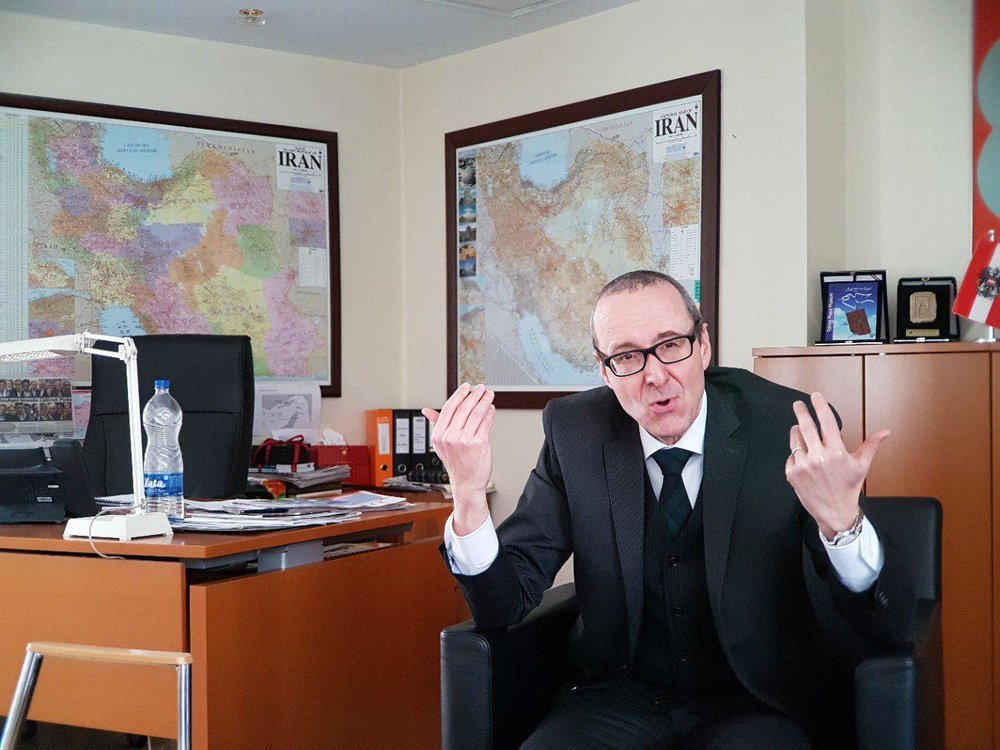‘There is room for improving water resources by adopting smart regulations, technologies’

TEHRAN — “We all know Iran faces water shortages, however, we still see there is lots of room for improving the present resources by adopting smart regulations and smart technologies for strengthening water resilience,” Stefan Scholz, Vienna’s ambassador to Tehran has said.
Still too much water in Iran is wasted and this requires a completely new approach to integrated water management, the Austrian ambassador told Mehr news agency.
“The top leadership is very enlightened. It has acknowledged this problem and the urgent need to build resilience within water security, but the message has to trickle down to street-level bureaucracy which is the subset of a public agency or government institution where the civil servants work who have direct contact with members of the general public. So I think even with the comparably low water quantities of minus 38 percent available this year, Iran could achieve a relatively better outcome. Still, if recent precipitation trends continue it will not be possible to avoid water shortages, on top of declining water quality and untreated waste water. But we could save time if the right policies are to be implemented now.”
Elsewhere in his remarks, Scholz said that “some 25 years ago we had a very dramatic policy change in Austria, this was when a rising awareness set in about the negative impacts of unchecked industrialization on the environment, particularly on our forests and lakes. So we started in a very systematic way to address the problem. We adapted our regulatory framework and our export oriented economy, as it turned out, strongly profited from this policy reorientation.”
In the first phase there were segments of the population and vested interests who opposed the new theory of change, as they thought that green energy, clean environment and clean air are to the detriment of industrial output. It showed 25 years later that this reorientation turned out a huge success for the Austrian economy as a whole, he said, stating, “Because now we have brightly established a number of niches where we became world champions for the technologies that we developed when we successfully cleaned up the environment.”
“We have 40 major lakes in Austria all of them have drinking water quality today, which they did not have some 25 years ago. So it is a narrative that implies change is possible when you apply the right regulations and the right technology which Austria is willing to share with Iran. It is all about developing a theory of change that can propel societal development to the next level”
Inquired about transboundary water resources shared between countries and their management the ambassador explained that there are many analysts who claim that water will be the source of conflict in the next decades to come.
“In the case of Europe there are three countries that have a surplus of fresh water, Austria is one of them. There is quite some pressure on the level of the European Union and in Brussels that we make the privatization of water management and European Union competence. Austria is adamantly opposed to that. Here we seek to keep our sovereignty by deciding how we manage our own water resources. So this is an important point; you need the ownership by republic authorities.”
“When it comes to Iran water security could be one of the mottos of the future cooperation between Iran and Austria and high level visits. We very much think that this is a niche area which is of extreme importance to Iran and Iranian people where we could cooperate. I recently visited Mashhad and I agreed with the mayor that we led a business delegation together with the Austrian ministry of economic affairs to Tehran and Mashhad to discuss possible solutions for the water shortages,” he concluded.
MQ/MG
Leave a Comment